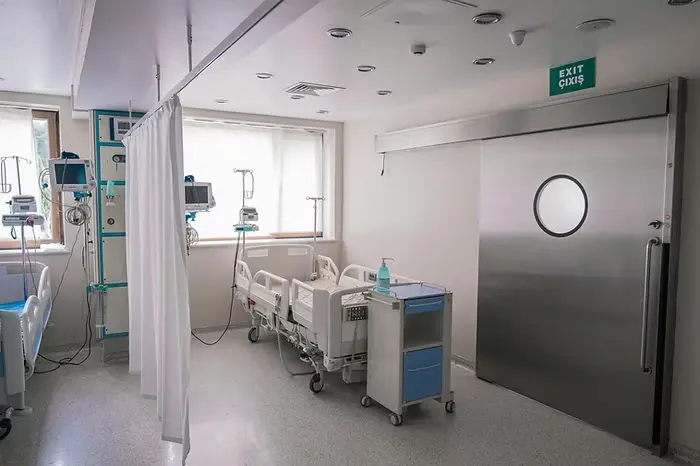Understanding Medical Device-Related Pressure Injuries in Complex Nursing Care
- Apex Experts

- Jun 30, 2025
- 2 min read
Updated: Jul 9, 2025
Managing medical device-related pressure injuries in at-risk hospitalised patients
Medical device-related pressure injuries (MDRPIs) are a significant yet often underestimated risk in hospital care. When a vulnerable patient is reliant on restrictive equipment such as a brace following trauma the convergence of immobility, incontinence, and infection can elevate the potential for avoidable harm.
In a recent case review, a patient being treated conservatively with a rigid leg brace developed localised skin deterioration. Although general documentation noted barrier creams and occasional skin observations, no structured plan was in place for device-specific skin inspection. This omission became critical, especially considering the patient’s limited mobility, episodes of infection, and repeated incontinence.
Despite the complexity of the patient’s condition including, systemic infection and compromised skin integrity, there was no recorded multidisciplinary response, no escalation to a tissue viability nurse, and no plan to manage device-related pressure risks.
Documentation gaps undermine care defensibility

This case underscores how even diligent nursing care can fall short when documentation lacks specificity. The absence of consistent logs relating to device inspection, continence care, or escalation pathways made it difficult to demonstrate that proactive risk management was undertaken.
The expert concluded that while some aspects of care were commendable, the failure to identify and mitigate risk from the brace itself contributed to preventable skin damage.
Key learning points:
Daily inspection of skin under and around immobilising devices is essential
Device-specific risk assessment must be documented and reviewed regularly
Multidisciplinary escalation (TVN, orthopaedics, continence) should be considered early
Pressure injury prevention plans must adapt to patient complexity
Prevention is proactive, not reactive
The expert’s opinion was clear: without a targeted, device-specific care plan in place, standard pressure-relief interventions such as general repositioning schedules or low-airflow mattresses are insufficient to mitigate the unique risks posed by traction equipment. Medical device-related pressure injuries (MDRPIs) are well recognised within both clinical practice and national guidelines. Devices like traction cords, bandages, or splints create sustained pressure points not always addressed by routine skin care protocols. These risks are predictable, preventable, and require proactive planning from the outset of traction application.

Importantly, the expert emphasised that MDRPIs demand early and regular skin inspection regimes specifically focused on device contact areas. This includes clear documentation of inspection frequency, escalation triggers, and multidisciplinary review when early skin compromise is identified. In this case, the absence of daily documented skin assessments allowed a minor blister to deteriorate unchecked, evolving into full-thickness tissue necrosis that might otherwise have been avoided entirely.
Where patient vulnerability is high, such as in frail, elderly or immobile individuals, and where documentation fails to clearly evidence proactive care planning, the risk of legal indefensibility rises sharply. In medico-legal terms, it becomes extremely difficult for a healthcare provider to demonstrate that reasonable care was provided if there is no contemporaneous written record of risk identification, monitoring, or corrective action. Courts and regulators are likely to interpret undocumented care as care that was not delivered.
Need a nursing expert witness? Get in touch with us at info@apexexperts.co.uk, call us on 0203 633 2213 or visit our contact us page.
